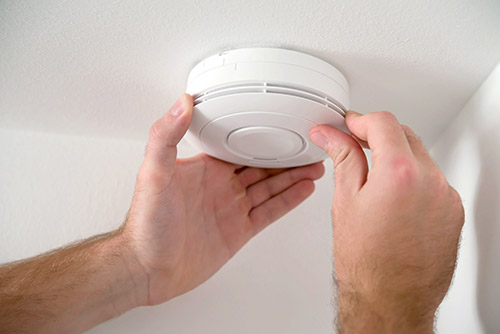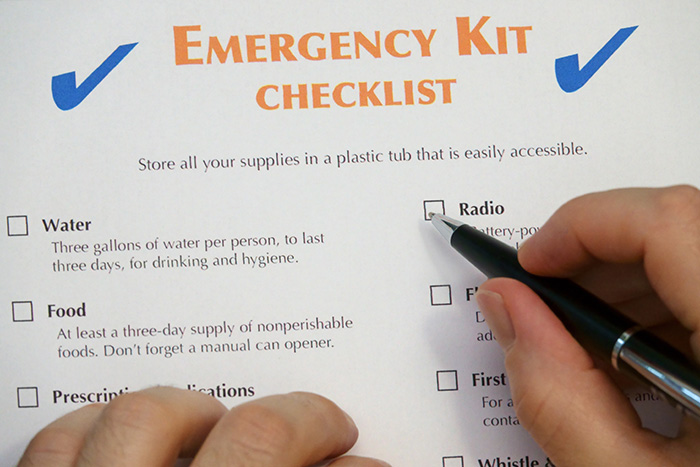
More than half of all fatal home fires occur while people sleep. That's why smoke detectors are so essential. They can warn you before you smell smoke and give you time to get to safety. We recommend at least one smoke detector on every level of your home, including the basement and the attic.
Here are some important things to remember when installing smoke detectors:
- To be extra safe, install one both outside and inside all sleeping areas. Having at least two smoke detectors in your home makes it far less likely that both will be inoperative at the same time.
- If your smoke alarms are wired into the home's electrical system (hard-wired), you will need to have a qualified electrician do the initial installation or install replacements.
- For battery powered smoke alarms, all you will need for installation is a screw driver. Some brands are self-adhesive and will easily stick to the wall or ceiling.
- Be sure to follow the manufacturer's installation instructions because there are differences between the various brands. Remember: Battery-powered smoke alarms typically require batteries to be replaced at least once per year. The whole unit should be replaced every 8-10 years.
- If your home's smoke detectors are powered by electricity, add at least one battery-powered detector in case of power outages.
- Choose a smoke detector that's been approved by an independent laboratory.
- Test smoke detectors monthly. Never disconnect the batteries.
- Test your alarms while your children sleep to make sure they will wake them up. Sometimes the sound of a smoke alarm doesn't wake small children.
- Change batteries at least once a year, whether the batteries seem weak or not. Listen for the detector's signal or beep that indicates a weak battery and change it immediately.
- Follow the manufacturer's instructions to clean your smoke detectors. Excessive dust, grease or other materials may cause them to operate improperly. Vacuum the detector's grillwork.
- For more information on smoke alarms, please visit the USFA Web site at www.usfa.dhs.gov/citizens/
For more information, contact Lallis & Higgins Insurance.




